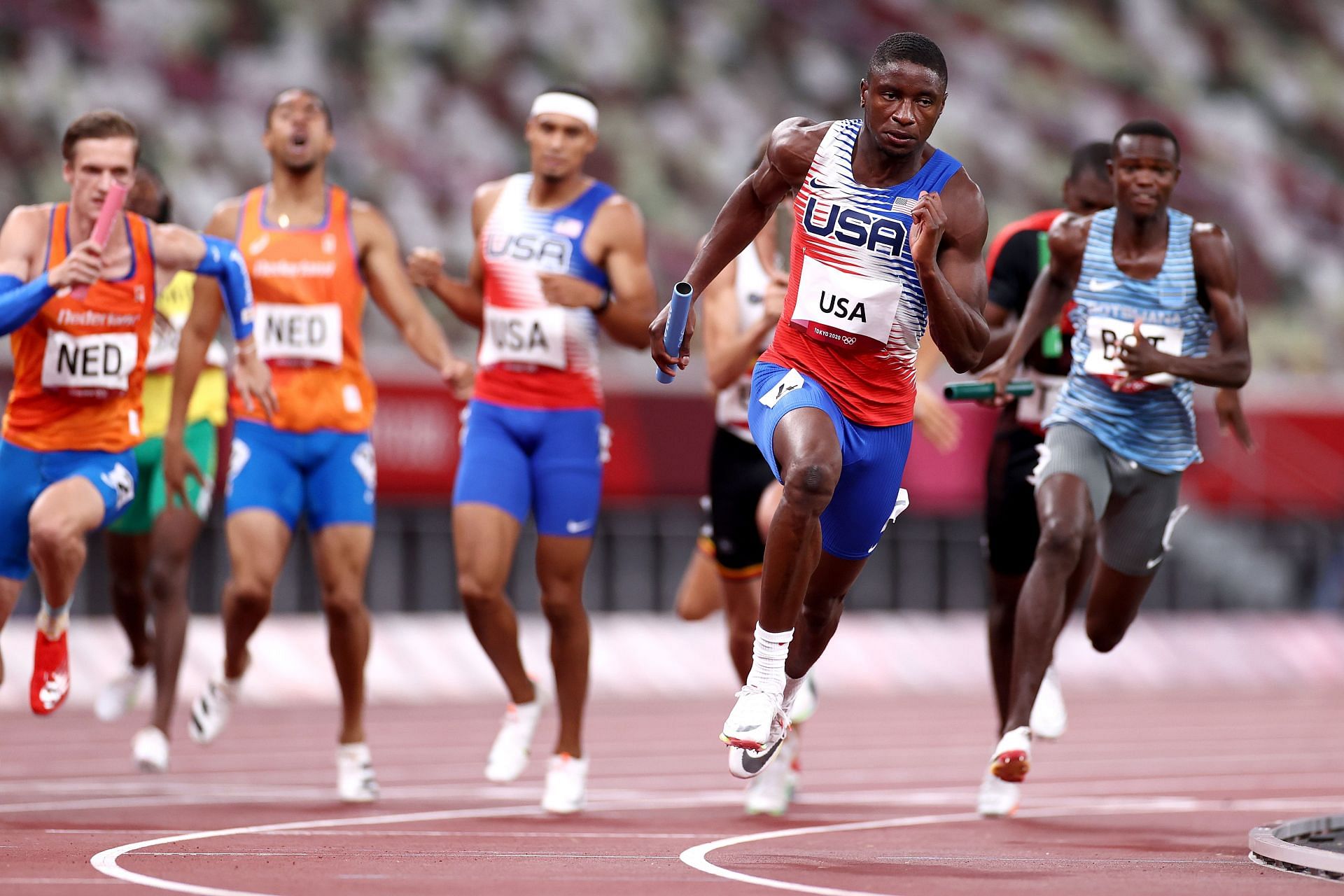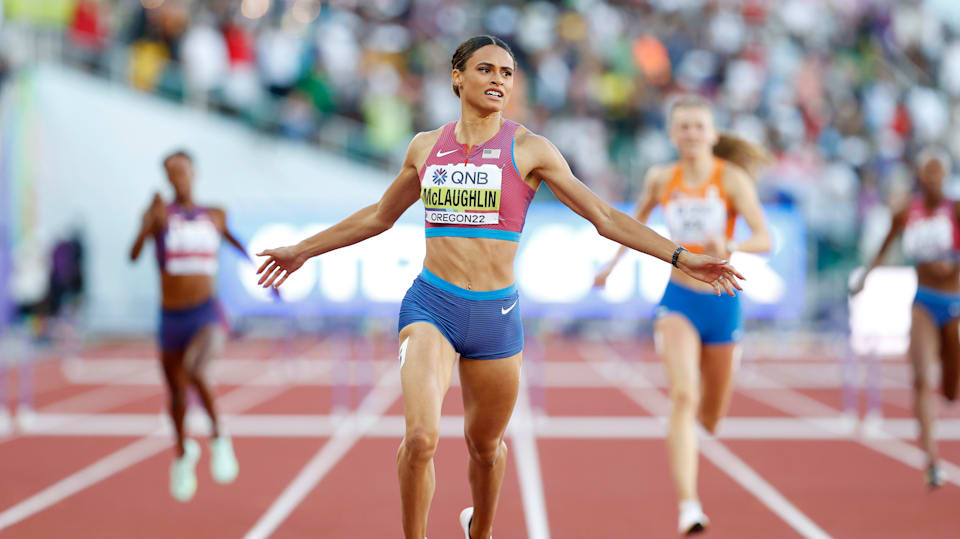The 2024 Paris Olympics: Athletics 2024 Olympics
The 2024 Summer Olympics, set to take place in Paris, France, are poised to be a monumental global sporting event. As the world’s athletes converge on the City of Lights, the Games promise to showcase the pinnacle of athletic achievement and foster international unity and camaraderie.
The Significance of the 2024 Olympics
The 2024 Paris Olympics represent a significant milestone in the history of the Games. The event marks the third time that Paris will host the Summer Olympics, following the successful editions in 1900 and 1924. The city’s rich history, iconic landmarks, and vibrant culture make it an ideal backdrop for this global sporting spectacle. The Games will not only celebrate athletic excellence but also showcase the cultural diversity and dynamism of Paris and France.
The Legacy of the Olympic Games
The Olympic Games have a long and storied history, dating back to ancient Greece. The modern Olympic Games were revived in 1896 by Pierre de Coubertin, a French educator and historian, with the goal of promoting peace and understanding through sport. The Games have evolved over the years, but the core values of sportsmanship, fair play, and global unity remain at their heart. The Olympic Games have served as a platform for athletes from all over the world to compete at the highest level and inspire generations to come.
The Economic and Social Impact of Hosting the Olympics, Athletics 2024 olympics
Hosting the Olympic Games has a significant economic and social impact on the host city and country. The Games generate substantial revenue through tourism, infrastructure development, and media rights. However, hosting the Olympics also involves significant costs, including infrastructure upgrades, security measures, and operational expenses. The Games can also lead to social and cultural benefits, such as increased tourism, improved infrastructure, and a boost in national pride.
Expected Participation of Athletes
The 2024 Paris Olympics are expected to draw athletes from over 200 nations, representing the diversity of the global sporting community. The Games will feature a wide range of sports, including traditional disciplines like track and field, swimming, and gymnastics, as well as newer additions like skateboarding, surfing, and breaking. The participation of athletes from different nations is a testament to the unifying power of sport and its ability to bridge cultural and political divides.
Top 10 Medal-Winning Countries from the Previous Olympics
The following table showcases the top 10 medal-winning countries from the 2020 Tokyo Olympics:
| Rank | Country | Gold | Silver | Bronze | Total |
|---|---|---|---|---|---|
| 1 | United States | 39 | 41 | 33 | 113 |
| 2 | China | 38 | 32 | 18 | 88 |
| 3 | Japan | 27 | 14 | 17 | 58 |
| 4 | Great Britain | 22 | 21 | 22 | 65 |
| 5 | ROC | 20 | 28 | 23 | 71 |
| 6 | Australia | 17 | 7 | 22 | 46 |
| 7 | Netherlands | 10 | 12 | 14 | 36 |
| 8 | France | 10 | 12 | 11 | 33 |
| 9 | Germany | 10 | 11 | 16 | 37 |
| 10 | Italy | 10 | 10 | 20 | 40 |
Technological Innovations and Sustainability in Athletics

The 2024 Paris Olympics are poised to showcase the transformative power of technology and sustainability in athletics. From enhancing performance to ensuring a greener footprint, innovations are revolutionizing the way athletes train, compete, and interact with the environment.
Technology in Performance Enhancement and Officiating
The role of technology in athletics has become increasingly prominent, particularly in enhancing performance and officiating. Advancements in areas such as data analytics, biomechanics, and wearable technology have provided athletes and coaches with unprecedented insights into training and competition.
Data Analytics and Biomechanics
Data analytics and biomechanics play a crucial role in athlete training and competition.
- By analyzing vast amounts of data collected from sensors, wearables, and performance tracking systems, coaches can identify strengths, weaknesses, and areas for improvement.
- Biomechanical analysis helps optimize technique, reduce injury risk, and enhance performance efficiency.
- For example, the use of motion capture technology in track and field events allows coaches to analyze the biomechanics of a sprinter’s stride or a high jumper’s approach, providing valuable insights for technique refinement.
Technological Advancements in Officiating
Technology has also revolutionized officiating in athletics.
- The use of video replay systems, such as the Hawk-Eye system in tennis, allows officials to review close calls and make more accurate decisions.
- Photo-finish technology in track and field events provides a definitive record of the finishing order, eliminating the need for subjective judgment.
- In swimming, touchpads with electronic timing systems ensure precise and consistent measurement of race times.
Sustainability Initiatives in the 2024 Olympics
The 2024 Paris Olympics have placed a strong emphasis on sustainability, aiming to minimize the environmental impact of the event.
- The organizing committee has committed to using recycled materials for construction and infrastructure, reducing waste generation, and promoting sustainable transportation options.
- The Olympic Village will be designed with green building standards, incorporating energy-efficient technologies and renewable energy sources.
- Sustainability initiatives will extend to the use of eco-friendly materials for uniforms and equipment, reducing the carbon footprint of the event.
Innovative Technologies in Previous Olympics
Previous Olympic Games have witnessed the introduction of innovative technologies that have enhanced the experience for athletes, officials, and spectators.
- The 2012 London Olympics introduced the use of tablet computers for officials, streamlining the scoring and results process.
- The 2016 Rio Olympics featured the use of drones for aerial photography and video capture, providing a unique perspective of the Games.
- The 2020 Tokyo Olympics showcased the use of augmented reality (AR) and virtual reality (VR) technologies, enhancing the spectator experience and providing immersive content.
Sustainable Practices in Athletics Facilities and Infrastructure
Sustainability principles are increasingly being integrated into the design and operation of athletics facilities and infrastructure.
- The use of renewable energy sources, such as solar panels and wind turbines, helps reduce reliance on fossil fuels and minimize carbon emissions.
- Water conservation measures, including rainwater harvesting and efficient irrigation systems, help reduce water consumption.
- The use of sustainable building materials, such as bamboo and recycled plastic, promotes environmental responsibility and reduces the environmental impact of construction.
Athletics 2024 olympics – The 2024 Olympics in Paris are poised to be a spectacle of athletic prowess, but beyond the medals and records, the Games will also be a platform for showcasing diverse voices and stories. One inspiring figure who exemplifies this intersection of art and activism is hunter schafer young , whose journey from acting to advocacy has garnered global attention.
Her courage and commitment to social justice resonate deeply with the spirit of the Olympics, reminding us that sport can be a powerful force for positive change and inclusivity.
The 2024 Olympics in Paris are sure to be a spectacle, with athletes from around the world vying for gold. While the focus will be on the competition, it’s also a chance to see the lives of these athletes outside the arena, like that of singer-songwriter Dominic Fike, whose girlfriend, Diana Silvers, is a rising actress.
Diana Silvers and Dominic Fike have both found success in their respective fields, and their relationship adds another layer of intrigue to the games. It will be interesting to see how their personal lives play out against the backdrop of the world’s greatest sporting event.

